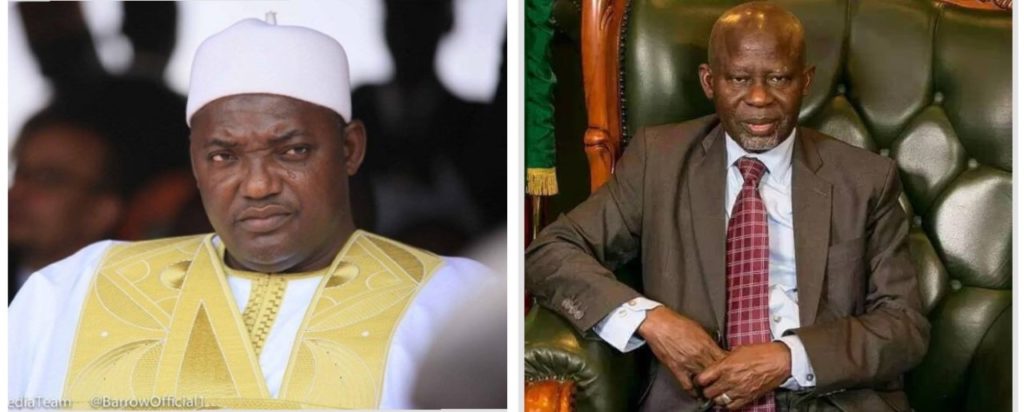
The United Democratic Party (UDP) has walked out of the Coalition meeting in protest after it demands were not met. The UDP wanted the other Coalition stakeholders to sign the 2016 agreement before any proposed amendments were carried out.
A source closed to the meeting said the other stakeholders refused to support the UDP proposal as “the intent of the UDP is to get the members to sign the original MoU so that the president will be compelled to serve a three-year term.”
However, the UDP spokesman Almami Taal denied that was the party’s intent.
“The UDP does not want to have a process where other stakeholders’ good faith is not assured. The UDP position has been that before doing any review, the first agreement must be signed first. But we have observed that all the other political parties were only interested in reviewing the three-year agreement.
“As it is now, the UDP cannot be part of a process until the stakeholders could demonstrate well with the process. The issue is more than the coalition stakeholders alone because the Gambian people naturally must have questions about the future of their country.”
Meanwhile the other Coalition partners have went ahead with their amendments to the 2016 agreement of a three year transition for the Barrow led Coalition government and decided to endorse the five year term as per the constitution.
“The three year agreement has now been amended to five years and it will be finalised and signed on Friday at the final meeting.
“We have also agreed to table the amendments before the president for him to consider them and get back to us in the soonest possible time,” an official involved in the talks who preferred anonymity said.
“As far as the coalition stakeholders are concerned, we don’t want to put conditions that are not in line with the Constitution before the president. If he feels like running for re-election, then let that be it,” the official added.
The Coalition meetings to review the 2016 agreement was organised by Mrs Fatoumata Jallow-Tambajang, former vice president and brainchild of the Coalition 2016 alliance.
However, other Coalition founding political parties such as PDOIS boycotted the talks on the grounds that the Barrow government is no longer a Coalition government after it failed to engage with other stakeholders in the running of the government.
Since Barrow’s assumption of the presidency in 2017 there have been series of high profile falling out with other Coalition political actors and parties.
In March this year Barrow severed all political ties with his former political party, UDP and its leader Ousainou Darboe after sacking him from his vice president post and two other senior ministers in a major cabinet reshuffle.










Recent Comments